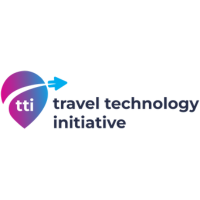The Future of Travel Tech: Innovations Driving the Future of the Industry
)
- Published: 11 Mar 2025
- By: Jonathan Carter-Chapman, Marketing Director, Northstar Travel Group
- Topics: AI in Travel, Booking Systems, Digital Transformation, Travel Technology Investment, Customer Experience
- Read Time: 9 minutes
Quick Summary
AI, agile booking systems, and composable digital stacks are reshaping the future of the travel industry.
As operators seek greater efficiency, personalisation, and profitability, new tools are helping address operational gaps, staffing shortages, rising customer expectations, and the pressing need to reduce the sector's carbon footprint. While websites and online booking platforms remain the top channel for reservations, AI and other technological advancements are now underpinning almost every layer of the digital travel experience.
REGISTRATION NOW LIVE Book Your Stand
Travel Tech Show | 25-26 June 2025 | ExCeL London
Introduction
The travel technology landscape is shifting at unprecedented speed. According to new research from the TravelTech Show 2024, 62% of travel businesses are increasing their technology budgets this year, with AI, booking systems, and mobile apps topping the investment agenda.
At the same time, business leaders across the travel sector are scrutinising performance, profitability, customer satisfaction, and sustainability more closely than ever.
This article explores the defining innovations shaping the future of travel tech—from AI and hyper-personalisation to the rebirth of direct booking channels, biometric technology, and new strategies for overcoming inflation, staffing challenges, and environmental pressures.
AI Moves From Buzzword to Backbone
AI is no longer an emerging trend; it's a foundational layer in the digital transformation of the travel industry. In 2024, over 80% of travel businesses plan to increase their use of AI tools. Over half are making AI their top area of new tech investment.
According to Glenn Fogel, CEO of Booking Holdings:
Common applications include 24/7 customer service chatbots, hyper-personalised recommendations, dynamic pricing, and AI assistants that guide travellers throughout their journeys. These solutions play a pivotal role in boosting customer satisfaction while streamlining operations.
Furthermore, AI-powered systems are helping companies monitor and minimise their carbon footprint through smarter logistics, predictive maintenance, and resource management, supporting a more sustainable future for the travel sector.
Booking Systems Are Evolving—Fast
Booking platforms are no longer just transactional tools. They are evolving into integrated ecosystems that unify inventory, pricing, payments, customer data, marketing automation, and more. These online booking platforms are essential in delivering seamless digital technology experiences.
According to PhocusWire, investment is flowing into platforms offering real-time inventory synchronisation, omnichannel support, integrated payments, and open APIs for custom integrations. This modular, composable approach is critical in adapting quickly to customer needs and industry disruption.
Industry leaders are emphasising the vital role of flexibility in their technology stacks, ensuring they can integrate future innovations without overhauling entire systems.
Direct Booking Channels Reclaim the Spotlight
Despite the previous dominance of OTAs, direct booking channels—especially through company websites and mobile apps—are regaining ground. The TravelTech Show survey revealed that 40% of travel buyers view websites as the most effective booking channel.
Driving this shift are benefits such as:
-
Greater control over customer data
-
Lower acquisition costs
-
Enhanced cross-selling and upselling opportunities
Travel brands are investing heavily in SEO, UX design, and AI-driven personalisation strategies to convert browsers into bookers. Digital technology is enabling brands to turn every touchpoint into an opportunity for customer engagement and loyalty.
AI-Powered Personalisation and CX
In today's environment, personalisation is not a luxury—it is the baseline for delivering an outstanding travel experience. AI is enabling a new level of hyper-personalised service, providing:
-
Custom itinerary builders
-
Smart notifications that adapt to real-time events
-
AI chatbots that resolve issues instantly
A McKinsey report found that companies using AI for personalisation achieved up to 20% revenue uplift and 30% higher engagement. These figures demonstrate the pivotal role AI now plays in driving customer satisfaction and loyalty.
Vicki Miller, Director of VisitScotland, comments:
Augmented Reality, Virtual Reality, and the Rise of Virtual Experiences
Another growing trend is the integration of Augmented Reality (AR) and Virtual Reality (VR) into the traveller journey. Virtual experiences are enhancing both the discovery and pre-booking stages of travel planning.
AR apps can overlay destination information onto a user’s surroundings, while VR tours enable customers to explore hotels, resorts, and destinations virtually before booking. This not only boosts confidence in booking decisions but also enhances the entire digital engagement journey.
As technology matures, industry leaders expect AR and VR to play a vital role in shaping the future of customer interaction and experience.
Technology as a Solution to Inflation and Labour Shortages
Rising costs and a stretched workforce have made technology not just an advantage, but a necessity. From automated check-ins to AI-driven scheduling tools, technology is helping businesses work smarter, not harder.
Biometric technology, for example, is streamlining airport and hotel processes, reducing wait times, and enhancing security. Solutions like facial recognition for check-ins and border control are becoming more widespread, creating smoother travel experiences while reducing operational strain.
As one hotel tech director noted anonymously in Skift:
The Fully Digitised Customer Journey
Today's travel journey is a fully digital experience—from initial inspiration to post-trip feedback. Companies that understand and optimise each touchpoint will be the ones to thrive.
-
AI and voice search now dominate discovery.
-
Mobile-first platforms support seamless booking and itinerary management.
-
Smart recommendations guide travellers in real-time.
-
Post-trip reviews and incentives drive loyalty and advocacy.
Travel firms adopting a data-driven, customer-first mindset are setting the pace for future success.
A New Era of Tech Stack Strategy
Flexibility is the name of the game. Agile, API-driven tech stacks allow travel businesses to plug and play best-in-class solutions, integrate analytics, and respond quickly to market shifts.
Composable architecture ensures companies aren't locked into rigid systems, allowing them to build dynamic, scalable infrastructures that adapt over time.
Business leaders must recognise that building a resilient, flexible, and customer-centric tech strategy is now a fundamental requirement, not a nice-to-have.
Final Thoughts
The next era of travel technology is already unfolding, led by intelligence, integration, and sustainability. Companies that embrace AI, invest in flexible online booking platforms, leverage biometric and virtual experiences, and minimise their carbon footprint will not just survive—they will lead.
The message is clear: digital technology is no longer a support function in the travel industry. It is the engine of growth, differentiation, and a sustainable future.
Further Reading
-
TravelTech Show 2024 Insights: https://traveltech-show.com/latest-news/ai-booking-systems-top-priorities-travel-tech-stacks
-
McKinsey – How Travel Companies Are Using Tech to Navigate Uncertainty: https://www.mckinsey.com/industries/travel-logistics-and-infrastructure/our-insights/how-travel-companies-are-using-tech-to-navigate-uncertainty
-
PhocusWire – Travel Distribution Trends 2024: https://www.phocuswire.com/travel-distribution-trends-2024-direct-vs-ota-vs-social
-
Skift – The Year Ahead in Travel Technology 2024: https://skift.com/2024/01/29/the-year-ahead-in-travel-technology-2024/
-
McKinsey – Next in Personalization in Travel: https://www.mckinsey.com/industries/travel-logistics-and-infrastructure/our-insights/next-in-personalization-travel
-
EPAM – Artificial Intelligence in Tourism in 2024: https://www.epam.com/insights/blogs/artificial-intelligence-in-tourism-in-2024
-
Lexology – Managing AI in Travel: https://www.lexology.com/library/detail.aspx?g=7f943321-fae7-4bcf-b51b-9d75f2e9a3b3

)
)
)
)
)
)
)
)
)
)
)
)
)
)
)
)
)
)
)





